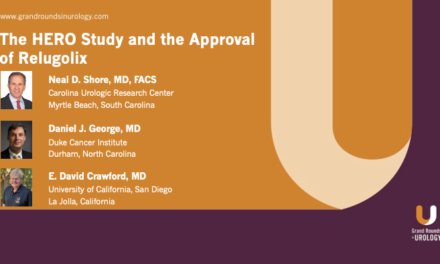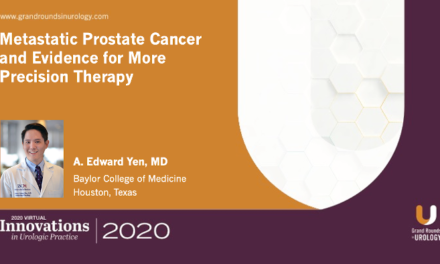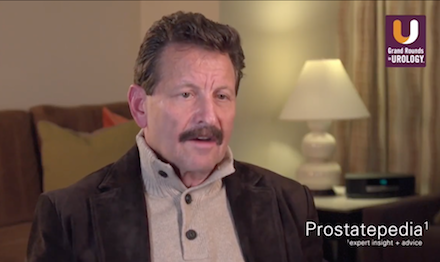
PCa Commentary | Volume 166 – June 2022
Posted by Edward Weber | June 2022
CAR-T CELL IMMUNOTHERAPY OF PROSTATE CANCER: PROMISING, BUT CURRENTLY ONLY A “WORK-IN-PROGRESS”
Years before there was even a glimmer of technical possibility for effective immunotherapy, there was great hope for harnessing the immune system to combat cancer. The earliest realization of this hope came with the FDA approval of sipuleucel-T in April 2010. Then, after more years of research, immune checkpoint inhibitors (e.g., pembrolizumab and others) were approved by the FDA after showing promise in treating a limited set of solid tumors, but not yet including prostate cancer.
The newest immunotherapy under intense research is chimeric antigen receptor lymphocyte therapy (CAR-T cell) therapy. These laboratory-engineered T cells have revolutionized the treatment of several hematologic malignancies—acute lymphocytic leukemia and large B-cell lymphomas. It is the promising research—and significant cautions for the application of CAR-T cell therapy in treating prostate cancer—that will be discussed in this Commentary.
The Overview:
The overview of the biology of cancer immunotherapy with CAR-T cells is misleadingly straightforward:
- Identify an appropriate tumor antigen (or two) on the targeted cancer cells
- Harvest T cells from a man’s blood, and (in the lab) engineer them to exhibit an antibody directed to the targeted cancer cell surface antigen(s)
- Incorporate within the T cell a trigger that activates the T cell upon contacting the cancer
The population of engineered T cells is expanded in the laboratory, but further expansion of T cells takes place in the circulation. The product is administered by intravenous infusion.
At the contact point between the T cell and the cancer, the now activated T cells (CD8+ or natural killer T cells) secrete perforin, a protein released by killer cells of the immune system, to create a pore through the cancer’s cell membrane through which is infused granzyme, a toxic cytokine that kills the cell. A single T cell can sequentially create many pores, but it has been recently learned that targeted cells can repair cores rapidly.
The Daunting Complexity of Engineering Safe and Effective CAR-T Cells:
Effectiveness: To be effective CAR-T cells have to be primed to target highly expressed antigens. The current best targets are the prostate-specific membrane antigen (PSMA), the prostate stem cell antigen (PSCA) and acid phosphatase (the target for sipuleucel-T). Unfortunately, PSMA and PSCA are also expressed on some normal cells creating the liability of off-tumor toxicity.
To gain access to malignant cells within tumors the CAR-Ts must traverse a hostile immunosuppressive tumor microenvironment where sentinel tumor associated macrophages and other cells secrete inhibitory molecules to disable the CAR-Ts. The tumor microenvironment is dense and inhibits CAR-T cell entry. Importantly, a sufficient ‘dose’ of CAR-T cells must be delivered and then remain in circulation a suitable length of time.
In order to improve CAR-T efficiency and durability in the circulation, some trials precede CAR-T infusion with lymphodepletion therapy, such as a course of chemotherapy to deplete the normal lymphocyte population and reduce competition with the CAR-T lymphocytes.
Combining CAR-T therapy with radiotherapy is under study to improve the local microenvironment, enabling the CAR-Ts to better infiltrate the tumor and gain access to cancer.
Yet another strategy is to combine CAR-T therapy with a checkpoint inhibitor (a type of immunotherapy that blocks proteins that stop the immune system from attacking the cancer cells) to enhance the CAR-T efficacy by shielding them from cancer-derived inhibitory signals.
Results of the First Two In-Human Trials of PSMA-Directed CAR-T Cells:
- In Nature Medicine, 2022, Narayan et al reported a modest efficacy of CAR-T therapy: four of 13 men with mCRPC showed a ≥ 30% decline in PSA, one of whom had a PSA decline of > 98% but later died of sepsis related to severe immunologic complications and concurrent sepsis. Five of the 13 men experienced the potentially lethal cytokine release syndrome (CRS) [to be discussed below].
- In the 9-man P-PSMA-101 trial at Memorial Sloan Kettering Cancer Center, five patients with mCRPC experienced measurable declines in PSA, and additionally three patients showed a > 50% PSA decline with associated PSMA PET scan improvement. CRS (cytokine release syndrome) occurred in three men. An additional man died of treatment-related liver failure, possibly caused by an overreaction of the immune system.
Safety Issues:
The PSMA and PSCA antigens are almost specific for prostate cancer in that they both are highly expressed in mCRPC, > 97% and > 87%, respectively. But PSMA is also displayed in salivary glands, kidney, small intestines, colon, liver, and the central nervous system; and PSCA is exhibited in bladder, kidney, skin, esophagus, brain and stomach—facts that will influence therapeutic approaches because of off-tumor toxicity. CAR-T cells can attack these normal cells and result in autoimmune disease and organ damage.
“The most life-threatening adverse effect after CAR-T cell infusion is the cytokine release syndrome (CRS) associated with high levels of several cytokines [inflammatory molecular messaging signals], especially IL-1 and IL-6.” These CRS adverse effects range from fever, rash, fatigue, muscle and joint aches, tachycardia, and hypotension; and more severe events such as organ dysfunction (e.g., renal and hepatic failure) and neurologic symptoms (e.g., confusion, delirium, and seizures).
One approach under consideration is implanting a “suicided gene” into CAR-T cells that can be activated to kill the CAR-T population in a situation of run-away life-threatening CRS (cited in “The safety and efficacy of CAR-T cells in the treatment of prostate cancer: Review. Salel et al. Biomarkers. Dec 2021). Additionally, CAR-T therapy can lead to hematologic suppression and an escalated risk of infectious complications.
BOTTOM LINE:
The results of early trials of CAR-T cells targeting the PSMA antigen are promising. However, significant challenges remain:
- Overcoming the immunosuppressive tumor microenvironment
- Addressing the safety issues related to the potentially lethal inflammatory storm of the cytokine release syndrome
- Tweaking the co-stimulator domains to ensure persistence and proliferation of CAR-T cells in the circulation—to name only a few
[The Commentary will update advances in CAR-T therapies as they are reported.]
Your comments and requests for information on a specific topic are welcome e-mail ecweber@nwlink.com.
Please also visit https://prostatecancerfree.org/prostate-cancer-news for a selection of past issues of the PCa Commentary covering a variety of topics.
“I want to thank Dawn Scott, Staffperson, Tumor Institute Radiation Oncology Group, and Mike Scully, Librarian, Swedish Medical Center, for their unfailing, timely, and resourceful support of the Commentary project. Without their help this Commentary would not be possible.”
ABOUT THE AUTHOR
Edward Weber, MD, is a retired medical oncologist living in Seattle, Washington. He was born and raised in a suburb of Reading, Pennsylvania. After graduating from Princeton University in 1956 with a BA in History, Dr. Weber attended medical school at the University of Pennsylvania. His internship training took place at the University of Vermont in Burlington.
A tour of service as a Naval Flight Surgeon positioned him on Whidbey Island, Washington, and this introduction to the Pacific Northwest ultimately proved irresistible. Following naval service, he received postgraduate training in internal medicine in Philadelphia at the Pennsylvania Hospital and then pursued a fellowship in hematology and oncology at the University of Washington.
His career in medical oncology was at the Tumor Institute of the Swedish Hospital in Seattle where his practice focused largely on the treatment of patients experiencing lung, breast, colon, and genitourinary cancer and malignant lymphoma.
Toward the end of his career, he developed a particular concentration on the treatment of prostate cancer. Since retirement in 2002, he has authored the PCa Commentary, published by the Prostate Cancer Treatment Research Foundation, an analysis of new developments in the prostate cancer field with essays discussing and evaluating treatment management options in this disease. He is a regular speaker at various prostate cancer support groups around Seattle.




